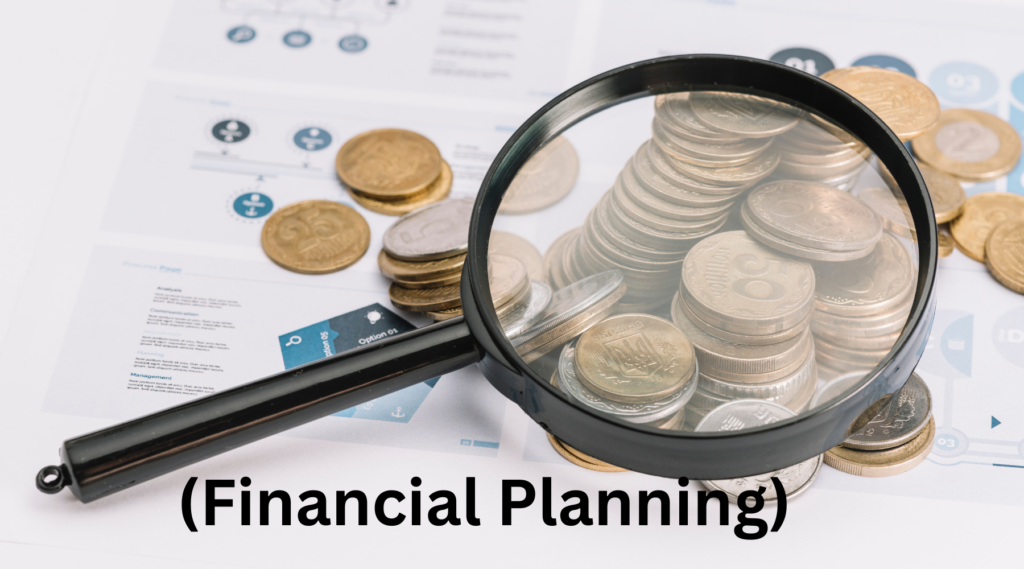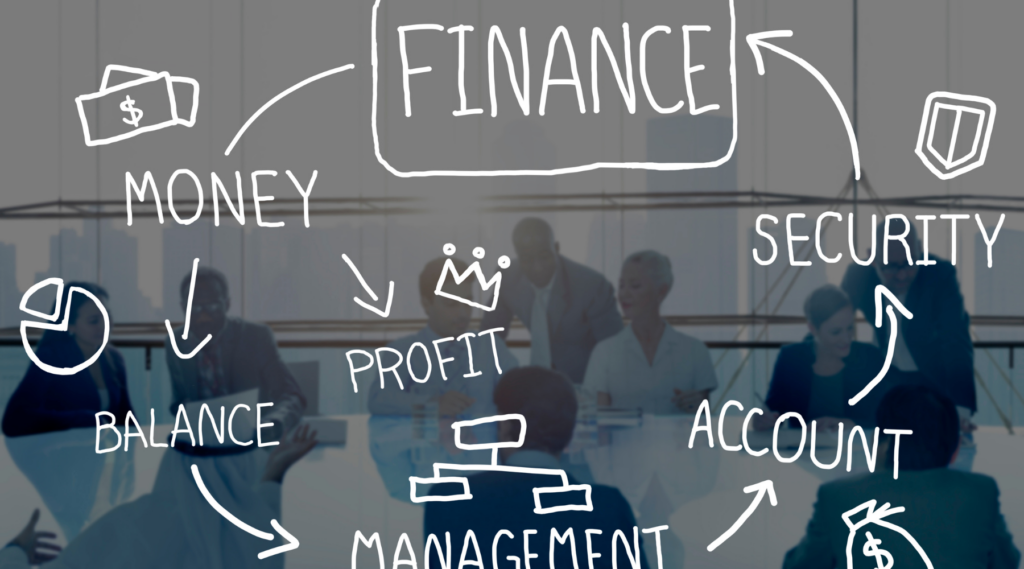
Financial Planning: Lately, the topic of inflation has gained popularity and is starting to come up in informal conversations with friends as well as at dinner tables and grocery stores. Many people are burdened by financial uncertainty as prices and living expenses grow. I sought guidance from financial advisors because I was worried about how inflation would impact my personal finances. Here’s what they had to say about safeguarding your money in these uncertain times.

Comprehending Inflation: Budgetary Management (Financial Planning)
It’s important to comprehend what inflation is and how it impacts our daily lives before delving into the helpful advice. The rate of general price increases for goods and services that reduces buying power is known as inflation. In other words, each dollar may purchase fewer goods and services as inflation increases. This implies that your current financial situation can eventually become less sufficient.

The Effects of Budgeting (Financial Planning)
Your financial life may be impacted by inflation in a number of ways, including:
• Purchasing Power: Your money can purchase fewer goods as prices rise. This is especially true for necessities like food, fuel, and lodging.
• Savings: You are essentially losing money over time if your savings are not generating enough interest to keep up with inflation.
• Investments: The way you approach your investment plan may change as a result of inflation’s effects on the performance of various asset types.
You can better appreciate the significance of protecting your money if you are aware of these effects.

Monitor Your Financial Situation More Frequently Financial Planning
Financial consultant Marigny deMauriac’s first piece of advice is to closely monitor your finances, particularly during times of inflation. To keep your finances in good shape, you must check your budget on a regular basis.
Financial Planning: Establishing a Monthly Finance Date
According to deMauriac, “Make a date with yourself once a month and put it on your calendar.” You can track the money flowing in and going out thanks to this deliberate check-in. It serves as a kind of financial wellness examination, making sure you are aware of any shifts in your spending patterns.
Why It Is Important Inflation affects different things at different rates. For instance, other expenses might not change even if petrol prices rise. You might find places where you might make savings to counteract growing expenses in other areas by routinely evaluating your budget.

Realistic Financial Planning Steps
1. Establish a Budget: Now is the ideal moment to establish a thorough monthly budget if you don’t already have one. Sort your costs by category and include all of your sources of income.
2. Monitor Spending: Keep tabs on your expenditures by using spreadsheets or budgeting applications. You may use this to find patterns and areas where you can make savings.
3. Modify as Necessary: Take into account modifying your budget if you observe that specific costs, like groceries or transportation, are increasing. Over time, modest adjustments made consistently can result in large savings.
2. Examine Financial Planning’s Cash Holdings
Although it may seem secure to keep money in a high-yield savings account, financial advisor Eric Brotman cautions that inflation can reduce the value of such funds.

The Decline of Financial Planning’s Cash Value
According to Brotman, “cash is lagging behind the cost of all goods and services.” Having too much cash on hand can make you more susceptible to the consequences of inflation. Diversifying your extra funds into other asset classes will help preserve your spending power, even if it’s crucial to have some cash on hand for emergencies.
The Significance of Diversification You may be able to grow your wealth over time by allocating a portion of your funds to assets like stocks or real estate that can outperform inflation.

Realistic Financial Planning Steps
1. Emergency Fund: Make sure you have a sizeable emergency fund in a high-yield savings account, usually equivalent to three to six months’ worth of living expenses.
2. Invest Sensibly: Take into account putting some of your funds into assets that have a track record of beating inflation, like:
1. Stocks: Over the long run, the stock market has historically produced returns that are higher than inflation.
2. Real Estate: Since property values frequently increase in tandem with inflation, real estate could be a useful hedge.
3. Commodities: Putting money into tangible goods like gold or oil can also help shield you from inflation.
4. Regularly Reassess: Make sure your asset allocation is in line with your financial objectives and the state of the economy by reviewing it on a regular basis.

Make Financial Plans to Get Out of Debt
The weight of debt can be made worse by inflation, especially as interest rates increase. Jay Zigmont, a financial adviser, stresses the significance of concentrating on debt reduction during periods of inflation.
Interest rates and inflation are a double whammy.
“Debt will be taking a much bigger bite out of most people because of inflation and rising interest rates,” Zigmont said. Inflation might make it much more difficult to meet your payments on high-interest loans.
The Significance of It: As prices rise, debt reduction can be a huge comfort because it frees up more funds for investments and savings rather than interest payments.

Practical Steps of (Financial Planning)
1. Establish a Debt Repayment Plan: Give priority to paying off credit card bills and other high-interest obligations. To approach your bills methodically, think about techniques like the avalanche or snowball tactics.
2. Lock Your Credit Cards: You may want to restrict the use of your credit cards or lock them in order to prevent further debt accumulation.
3. Set Clear Objectives: Define precise objectives for debt repayment, such as a deadline for debt elimination. You may stay motivated and focused by doing this.

Try to Increase Your Income
When inflation starts to impact your budget, increasing your income can be a smart strategy. Marigny deMauriac suggests exploring various avenues to enhance your earnings.
Diversifying Income Streams of (Financial Planning)
“This could entail negotiating for a promotion, taking on a second part-time job, or starting a side business,” she suggests. There are several methods to increase your income in the gig economy of today, including side gigs, freelancing, and other options.
Why It’s Helpful: You may keep your finances stable by raising your income, which will enable you to pay for growing expenses without depleting your savings.

Practical Steps
- Explore Side Hustles: Consider your skills and interests to identify potential side hustles. Some popular options include:
- Freelancing: Offer your skills on platforms like Upwork or Fiverr.
- Tutoring: Teach a subject you’re knowledgeable about.
- Delivery Services: Work for companies like DoorDash or Uber Eats.
- Negotiate Your Salary: If you’re employed, don’t hesitate to negotiate your salary or seek a promotion. Research industry standards to make a compelling case.
- Invest in Yourself: Consider taking courses or attending workshops to enhance your skills, making you more valuable in the job market.
Reconsider Your Bond Investments
As you review your investment portfolio, pay particular attention to fixed-income assets like bonds. Financial planner Haley Ellis warns that these investments are especially sensitive to inflation.

Understanding Bond Sensitivity
“When interest rates rise, bond prices decline because new bonds will offer higher interest payments,” she explains. As a result, long-term bonds may not be the best choice during inflationary periods.
Why It’s Important: By reassessing your bond investments, you can better protect your portfolio from the adverse effects of rising inflation.
Practical Steps
- Diversify Bond Holdings: Consider investing in short- to intermediate-term bonds rather than long-term ones, which are more vulnerable to rate changes.
- Balance Your Portfolio: Ensure your investment portfolio includes a mix of asset classes, such as stocks, bonds, and commodities, to minimize risk.
- Stay Informed: Keep up with economic trends and interest rate forecasts to make informed decisions about your bond investments.
Additional Strategies for Protecting Your Finances
While the advice above provides a solid foundation for safeguarding your finances during inflation, consider these additional strategies:
Embrace Budgeting and Financial Planning
A well-structured budget can be your best ally in uncertain times. Create a detailed financial plan that outlines your income, expenses, savings goals, and investment strategies. Regularly update this plan to reflect changes in your financial situation.
Invest in Yourself
Investing in your education and skills can yield significant returns. Consider pursuing certifications, attending workshops, or enrolling in online courses to enhance your skill set. This can lead to better job opportunities and increased earning potential.
Build a Strong Emergency Fund
An emergency fund is crucial for financial stability, especially during economic uncertainty. Aim to save at least three to six months’ worth of living expenses in a high-yield savings account. This can provide a safety net in case of unexpected expenses or job loss.
Stay Informed
Knowledge is power, especially when it comes to managing your finances. Stay informed about economic trends, inflation rates, and financial news. This awareness can help you make informed decisions about your investments and spending.
Consult a Financial Advisor
If you’re unsure about how to navigate your finances during inflation, consider consulting a financial advisor. A professional can provide personalized advice tailored to your unique financial situation, helping you devise a strategy that aligns with your goals.
Conclusion of Financial Planning
Inflation can be a daunting challenge, but with the right strategies and insights, you can protect your cash and maintain financial stability. By regularly reviewing your finances, diversifying your assets, reducing debt, increasing your income, and reassessing your investments, you can navigate these turbulent times with confidence.
Remember, the key to financial success is staying informed and adaptable. As the economic landscape shifts, be proactive in adjusting your strategies to safeguard your financial future. With diligence and planning, you can weather the storm of inflation and emerge stronger on the other side.